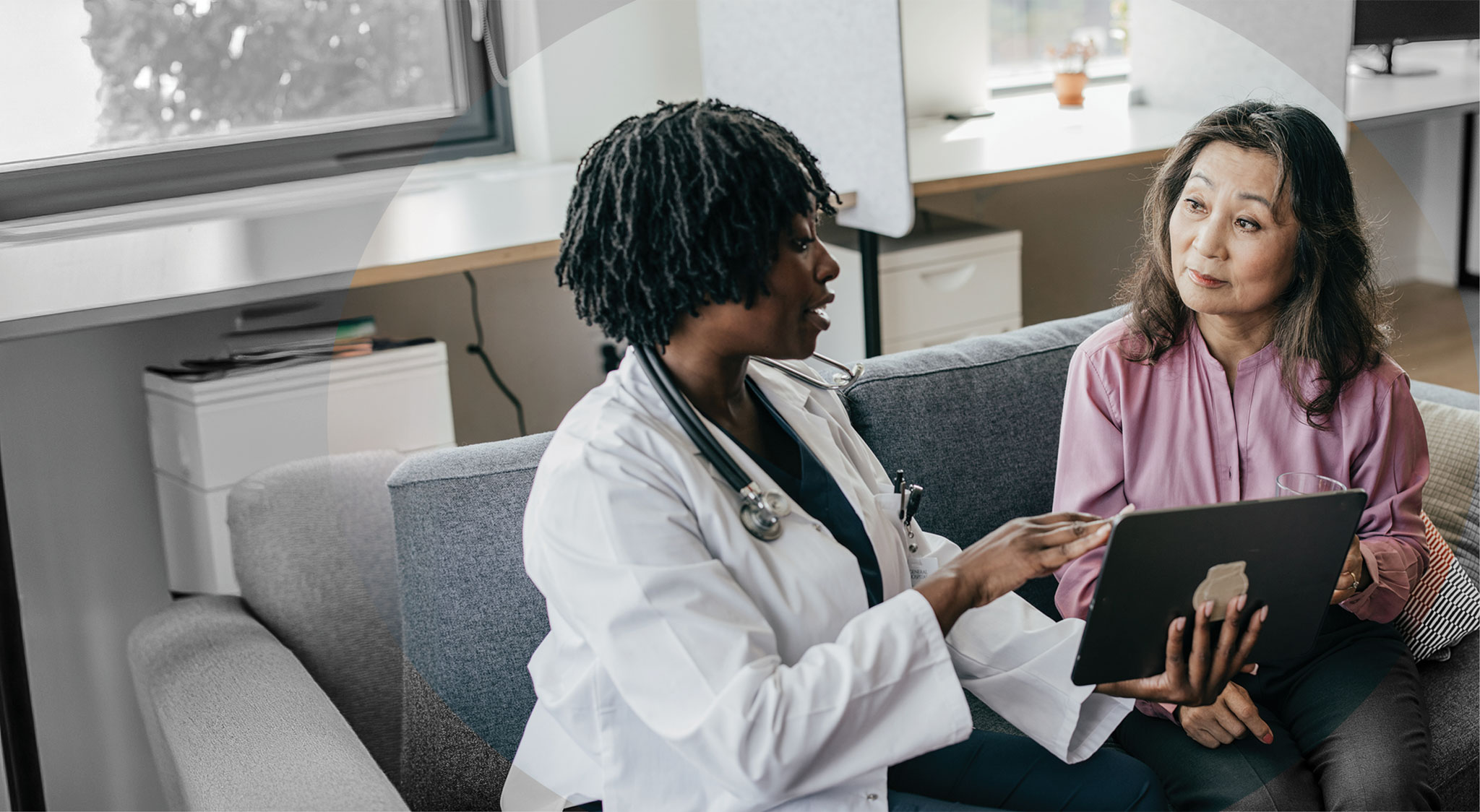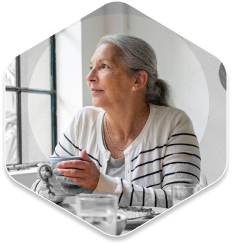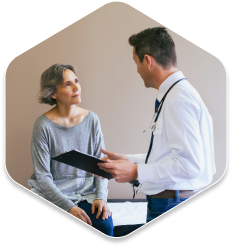
Being active in treatment decisions
Your treatment plan needs to work for your cancer type, but also for you. Learn why it’s important to advocate for yourself early and often.
How can I advocate for myself?
Your cancer care team is working together to determine the best treatment for your cancer. But it’s important that you feel empowered to speak up about both your treatment plan and your personal preferences and needs. Speaking up may include asking about benefits or risks of each type of treatment. Speaking up may also include asking about insurance, how far you’ll need to travel for appointments, or how to plan around work and childcare schedules. Certain treatment plans may work better for your individual needs, and by having these conversations, your team can craft a plan that considers the whole you.
Read below for more questions to help you talk to your care team about treatment and your personal needs.

Care team conversations
When talking to your cancer care team, these questions can help you get started:
- What are my cancer treatment options?
- How aggressive should I be with my treatment plan?
- What are the benefits and risks of each type of treatment?
- What are the short- and long-term side effects of each cancer treatment?
- If surgery is an option, what are some of the pros and cons at this stage?
- What are the parts of my treatment plan?
- How soon will my treatment begin?
- Will I need to plan for travel to multiple appointments and tests?
- Is there any flexibility with my treatment schedule?
- What if my treatment is interrupted due to a life change or family crisis?
My lifestyle and personal goals

In addition to sharing your treatment goals, it’s important to talk about your personal goals and circumstances. Consider discussing the following questions with your cancer care team during treatment discussions:
If you live farther away from your treatment facility or feel more comfortable with a local oncologist, bring this up with your care team. They may be able to work with your treatment facility, find housing and transportation options, or make a treatment schedule that works better for you.
Some people may be able to continue working, while others may not. Discuss how to balance work with your care team, including if and how you want to work during your treatment. They may be able to suggest a treatment schedule or treatment option that fits into your work schedule and other responsibilities.
When discussing your treatment plan, consider the full amount of time you will spend on your cancer care, including travel and wait times for treatments, scans, and labs. Your care team may suggest resources to help support you during treatment.
If you have concerns about your ability to have children, you are not alone. A lot of people think about how treatment will affect their family life. Talk to your care team about your options for fertility preservation (saving your eggs or sperm to be used in the future) so you can continue to grow your family the way you plan to. To learn more, visit this page about fertility and cancer.
If you have children, knowing that they will be cared for during your cancer treatment is an important concern. You may be able to find childcare support options that are affordable and near you.
Your care team will discuss the side effects of your treatment, which may include changes to your body, like hair loss. They may be able to share resources to help you, like local businesses that offer custom wigs or eyebrow tattooing. You can also connect with local support groups or Facebook groups to find tips and resources from others living with cancer.
It’s important to talk with your insurance provider and care team about costs. They can explain your specific plan and what is available for you. There are also financial support options for people who are uninsured or underinsured. Your care team may also share financial support resources.
“The one thing you need to remember is that you’re in charge of your care. You have a say in your care.”
—Parent of two kids and dog lover living with colon cancer
Market Research Participant
How will treatment fit into my daily life?
Cancer treatment can affect your daily life, but there may be ways to make it more manageable. Learn how to cope and tips for adjusting to your new day-to-day life.
US-KEY-08151 09/24




